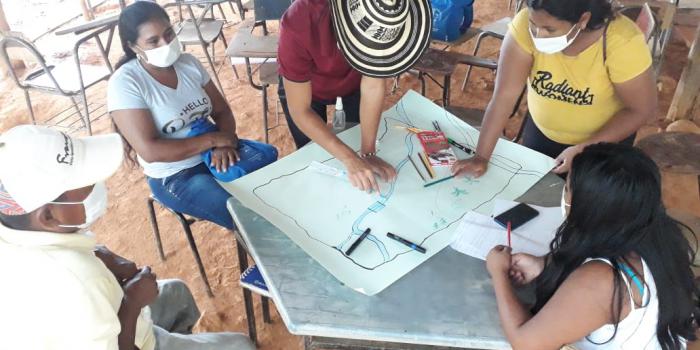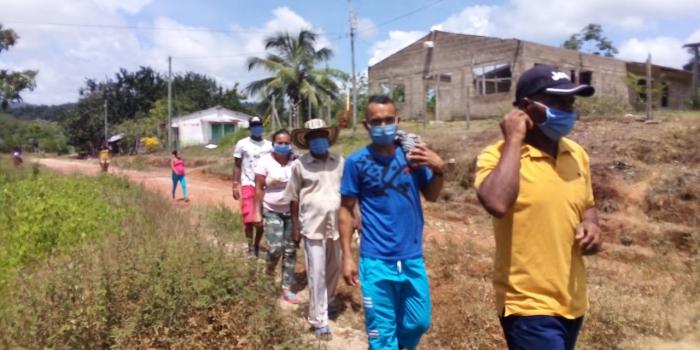
Zenú people advance in their comprehensive repair, in Antioquia
Thanks to the collective reparation of the Victims Unit, the community of Los Almendros and El 90 reservations report progress in the implementation of their measures.


As a rehabilitation measure of the collective reparation plan implemented by the Victims Unit, members of the collective reparation subject of the indigenous community of Los Almendros and El 90 of the Zenú people, in the municipality of El Bagre, carried out a community minga and planting in home gardens, to commemorate the appointment of their reservation.
Taking into account the biosecurity protocols due to the current situation due to the health emergency, the activity was developed autonomously, but with the guidance and financial support of the Victims Unit, in the respective reservations.
The objective of this measure is to achieve the implementation and sustainability of the recovery of their traditions and customs, such as home gardens and environmental guards, that allow them to recover and strengthen the community through these productive projects.
With the sowing of traditional seeds and the raising of corral animals, they progressed autonomously in carrying out a social mapping exercise and recognition of the territory, identifying them as a Zenu people.
The activity took place simultaneously in the two reservations, but they self-recognize as a single town, in which they share the same initiatives in the execution of the rehabilitation measure.
Rubén Darío Hernández, chief of El Noventa stated that “thanks to the Unit for Victims and the activities carried out in the territory in the process of collective reparation, we have achieved the unity of the people, we advance in integration, the recovery of the brotherhood and resuming own practices that had been lost”.
Hernández also said that "within our customs is the use of medicinal plants with which we prepare drinks and baths to cure diseases".
Peppermint, oregano, yerbasanta, lemon balm, sesame, and mouse-killer are some of the plants that were worked on during the meeting, which according to their uses and customs are used to drive away evil spirits.
Another of the objectives of the development of this activity as a measure of rehabilitation of their collective reparation plan was to heal their reservations and ensure that they maintain their sacred lands, which represent their everything, as they stated in the middle of the rituals carried out: “Our territory it is what the representations of what our traditions have been, in it we have been able to develop life, we have good sources of water and a great wealth of animals and vegetation”.
Within their traditions, women are in charge of sowing and harvesting, for which they stated that “the women of our community, in their day-to-day work, are in charge of planting, caring for the land, hence we take out many of the products we use for daily life”.
Sacred areas
Regarding the symbolic, the conquest and colonization were elements that drastically altered the customs and territory of Zenú people, being the installation of new cultural values that did not approximate the indigenous worldview, which motivated the desire to promote actions to maintain their identity and therefore everything sacred.
Later, the presence of armed actors as a new colonizer, again changed that conception of the territory and of the sacred areas, which were affected by the occupation of external people. s to the community, and because of the impossibility of passing them. For what their form of resistance and struggle to recover those areas in which their ancestral wisdom is exposed and its relationship with the universe, stating that "for us the sacred areas are part of the general territory, the fact that they have given the collective title of our reservations, it symbolizes that the entire extension of land is within the limits of the ancestral and the sacred”.
For his part, Wilson Córdoba, director of the Victims Unit in Antioquia, said that "the entity continues to make progress in accompanying the communities in their territories to achieve compliance with the agreements in their collective reparation plans for communities that have been hit by the armed conflict".
"The recovery of their traditions and customs are part of their comprehensive reparation", concluded the official.
(End/SMC/DFM/LMY)






